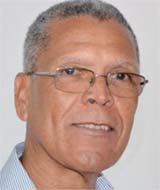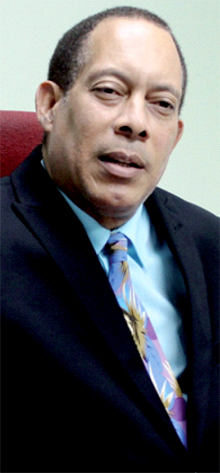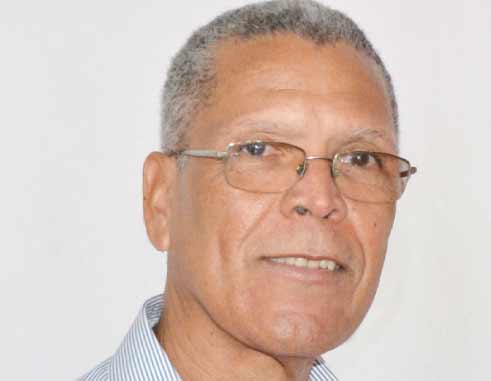
CRIME is on our minds.
Recently, I met someone who had apparently spent much of his adult life in and out of prison here. His last brush with the law however saw him attempting to smuggle drugs into the UK and getting caught, resulting in him being jailed in the UK. According to him, that was the best dose of jail that he had gotten in his life.
By his account, he was first taught a trade and paid a nominal sum during the period of his apprenticeship. He had to open a bank account, and learnt how to manage his money. Having learnt his trade, he was then employed within the prison system and paid a reasonable weekly wage, which, as before, he had to manage according to prison rules. He indicated that he also went back to school while in prison.
Rehabilitation of criminals is expensive, and according to the UK Ministry of Justice report for 2013-2014, it costs the UK Government £33,785 or about EC$130,000 per prisoner per year. We have no indication of the cost of incarcerating and rehabilitating prisoners for St. Lucia, but coming closer to home, the Chief Justice of Trinidad & Tobago gave an indication of the cost for that country in his address at the opening of this year’s law term.
According to Chief Justice Archie, the cost of incarcerating a prisoner in T&T is some TT$13,000 or approximately EC$5,500 per month, and that is with limited rehabilitation. We can assume that the cost in St. Lucia is somewhere around this, and with over 600 persons incarcerated at Bordelais, it suggests a cost of around EC$3.3 Million per month. Then there’s the cost of our police and judicial services to be added. Dealing with crime is an expensive business.
There is another side to crime however, because, as we saw in Part I which looked at Education, at least 50%, and up to 80% of children entering secondary school leave without a secondary education. This failure rate means that on average, every year we produce a batch of some 1,000 to 2,000 young people who have no realistic hope of ever holding a job. It only requires a small percentage of these young people to gravitate to crime for our country to be brought to its knees.
Our education system is not working, our judicial system is overwhelmed, and our prison system is over-crowded. Chief Justice Archie had some advice for T&T though, and according to him “it is common sense to spend money on education and diversionary programmes which cost less than TT$13,000 per month, the cost to keep a prisoner before recycling him, and it’s usually a him, into society with severely limited prospects for productive employment”. We should pay attention to the Chief Justice’s advice.
Yet, while we continue to be faced with major issues in our criminal justice system, a little over two months ago government proudly announced the opening of a new Commercial Court. This Court is welcome, but how can business be expected to flourish in a society plagued by crime? The opening of this Court was an opportune time for government to announce its plans to address crime and the criminal justice system, but unfortunately, that opportunity was missed.
Now, with the increased incidence of rape, we hear of piecemeal measures which purport to address this plague: a sex offenders registry and a new unit within the police force. The criminal justice system remains untouched.
A similar lack of attention appears to be affecting our forensic laboratory. A $6 Million facility, opened in December 2009 with a reported addition of $2 million in equipment, it is today, (April 13), closed and no one can say why. The first hint of difficulty came with correspondence from the lab’s former head of the DNA section to The Star of September 19, 2013 in which she indicated issues with respect to the management and operation of the lab.
There was no official response to the allegations contained in this correspondence, but in May 2014, the Minister of National Security, responding to criticisms of the performance of the lab, indicated that he was satisfied with the lab’s operations. According to him, the lab “is by and large working well” (St. Lucia News Online, May 20, 2014).
One year later, however, this newspaper on May 14, 2015 published a story indicating that there had been allegations of security breaches at the lab for some time, and that “within the last two weeks the situation took a turn for the worse resulting in the closure of the lab and the resignation of its director”.

With the matter receiving public attention, the Minister of National Security next addressed the media on June 9, 2015 indicating that an audit of the lab had been commissioned, that a report was available on the forensic operations of the lab, but that government was awaiting a report on its security operations which should have become available within a few days. The public still does not know the findings of this audit.
The next official statement came from an interview with the National Security Minister on November 17, 2015 during which he indicated that government was considering the establishment of an independent body to manage the laboratory and that the lab should be operational within the next few months. The lab, however, remains closed, and nobody understands why it was initially closed, or why it remains closed.
What was even more disturbing though was government’s indication that it was considering independent management for the lab, an indication which came within a few months of a call in the media for government to enter into a Public Private Partnership (PPP) for this purpose. This call was repeated recently.
PPPs are normally established to encourage the mobilisation of private capital for financing public projects, but in the case of the lab, the public has built, equipped, and paid for it. Now we are being told that government does not have the capacity to manage a forensic lab, and that independent foreign based private management had been sought. Unable to afford it, Government has since proposed to enter into a joint-venture agreement for the management of the lab.
Is this what our Independence means to us? Thirty-seven years after becoming independent, at a time when the slogan “Sovereign and Independent” is on the tip of every tongue, we throw our hands up in defeat and admit that we are incapable of managing a forensic lab? Where is our national pride? When planning the construction of the lab didn’t we plan for staffing it? Just what prevents government from staffing the lab today?
Those making these admissions of defeat should be reminded that government does not only have responsibility for management of a forensic lab. If government is incapable of managing a lab, how in the name of all things sane will it manage two state of the art hospitals simultaneously, much less a country on top of that?
We must however thank Mr. Louis Murray for his contributions in this newspaper on matters affecting the laboratory, as they provide a glimpse of the depth of the problem which we face. According to Mr. Murray in his column last Saturday, “Even as the laboratory closed around June 2015, it became largely incapable to (sic) conduct investigative forensics from as far back as 2012”. If Mr. Murray is correct, how then was the Minister of National Security able to confirm in May 2014 that the lab was “by and large working well” as referenced above?
We really exist in parallel worlds, and hopefully someone will be able to explain the bizarre consequences of this existence.
Next week, Parallel Worlds Part III: Climate Change.















………can you imagine if this group of Phds had taken over from the British upon St. Lucia attaining Statehood?………..well, we would still have: the swamp that is now Rodney Bay, tou ganaiy(Conway), shit alley and it would still take up six hours to get to Soufriere, ……….sure you can think of more. They would have studied US;:, commissioned US and reported US to death!!
The dangers of political leaders especially within the last ten years is that they have become “brain dead”. They are no different from zombies walking the streets.
They shamelessly continue to steal the ideas of other politicians from more delevoped countries and present it to their citizens presenting it as their own, irrespective of whether these ideas are bad and may result in serious financial consequences to their countries in the near future.
Take for example the implementation of a sex registry for rape offenders with no additional support.
Even worse seeking the funding of the forensic lab from the private sector. Beyond absurd.
Can you imagine the total erosion and exploitation of that system once these private investors begin to demand that system operate on a “for profit only? ” as part of a return on their investment?
Soon there will be ideas of running all educational facilities on a for profit basis as well because other nations have implemented those practices. A ticking time bomb waiting to explode.
Politicians have become the very same shameless rapists and nightmare thieves that stifles our society by failing to lead through imaginative and reasonable thinking.
They somehow feel entitled to a free passage in life because of their education.
Which is meaningless unless one is unable to apply and implement the ideas they learnt , in a practical manner in today’s society. Which many are proving that they are incapable of.
Many politicians are like a poison pill to their citizens because they lack imagination.
Gone are the days of great Caribbean leaders and imaginative thinkers like Forbes Burnham, Eric Williams, Tom Adams, George Odlum and though many may disagree John Compton.
Those individuals constantly thought of ways of bettering the lives of their people rather than using their positions simply for self elevation.